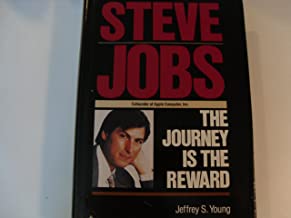Retirement = Death
According to a 2016 study by the Center for Retirement Research at Boston College on the Mortality Effects of Retirement, it is clear that “There may be an increase in mortality risks when people stop work.” This mirrors my own experience with Retirement and underscores the importance of removing the word Retirement from our vocabulary.

I was honored to be asked to present “The Art of Financial Sustainability” to a local ChooseFI group in Phoenix this week. The audience had a mix of FI & FIRE followers - many of which had already retired and yet were out there having new adventures, etc. and some that were on the path to retirement. There were also representatives from the financial advisory industry (traditional CPA & Financial Advisor types).
My presentation definitely mirrors what you read on www.beunconstrained.com but also what I talk to on the Unconstrained Podcast. I definitely try and poke the bear of traditional mainstream thinking. Why? Because the path of school, work & retirement doesn’t work at either end - the starting end enslaves 18 year olds into debt contracts for hundreds of thousands before they are even legally allowed to buy a beer at a bar in most states, and retirees at the tail end who were told to look forward to their “golden years” either can’t stop working, or have found that saving massive amounts of capital in bank accounts is yielding them less than 1% interest on that money, and nowhere near keeping up with inflation - forcing them to put their life’s savings into riskier and riskier investments.
But when I told my story to this audience, I realized there were two key events in my own backstory (I won’t go into it here - you can hear much of this on Episode 1 of the Unconstrained Podcast if you are so inclined), where I retired at the age of 32, only to have my marriage destroyed, and almost my life destroyed in a massive car accident. And when I should have known better, because at the age of 22 I had to bury my father who died 2 years after his “golden years” should have started, at the age of 67.
The reality is that we can’t predict the future. And to put all of your effort into building up savings to get you through the winter of your final quarter in life is a fool’s errand in my experience. Sure, I’ll get a lot of flack for this but all we are doing is to repeat the same social mantras that are not working in the 21st century - “Go to school, Study hard, Get a good job, Raise a family and sock away money in your 401K or IRA for retirement”. This statement falls into the same category that I used to hear all the time in the 1980s in the IT business - “No one ever got fired for buying IBM”. If you say nothing outrageous - whether you are right - you will avoid the scrutiny of the herd that are blindly and religiously focused on heading down the road together and over the cliff.
It is clear that we have to challenge this. And this study provides the core information to support it:
https://crr.bc.edu/wp-content/uploads/2016/08/wp_2016-7.pdf
The study takes the base evidence of US males that take retirement/social security at the age of 62, and finds the coincident increase in mortality soon after turning 62.
So that mirrors my own personal experience, but here’s what I heard at this presentation that blew my mind.
A lady there who used to be a CFO at a MAJOR Fortune 100 corporation - one that has been around for 100 years or so, told me that when she was working there they had done studies on the life expectancy of workers who retired, since they offered a pension plan to them. As the corporation had to fund the pension plan, knowing the true cost of this really comes down to how long someone will likely live after retirement.
What she told me shocked me to the core. She said that their studies showed an average life expectancy after retirement of only 18 months! Holy crap. You work all your life, you retire with the gold watch & 401K/IRA/Pension, and your gone 18 months later.
I’ve been trying to further unravel this statement and find supporting or conflicting evidence to the contrary and I’m having a really hard time trying to go against it. I mean my own experience supports that, but now we have university studies supporting it as well.
Flying in the face of mainstream thinking
So at the end of the presentation I get to ask the audience if they have any questions. This is the best time for me, because I get to understand not only if the presentation went over well, but also just to get a sense of where people are at on the road to freedom.
I clearly saw two different methodologies here - the FI people vs. the Traditionalists.

The FI people went against the grain. My presentation was very well received by them because not only did it support the attempt to break free of social norms with the school/work/retire concept, but if anything it added to their existing path by giving them some alternative ideas that support this with Financial Sustainability.
But when it came to the traditionalists, I definitely felt the push back. No, I wasn’t telling the audience to buy Index Funds. No I wasn’t interested in perpetuating the mainstream investment advice of maxing out one’s 401K or IRA.
And to underscore this, one of the younger audience members asked me a very interesting question. He said, “If you had one piece of advice for someone of my age in regards to my financial strategies, what would it be?”
As I was answering this, one of the “traditionalists” interjected his recommendation. That was this:
“If your employer offers you matching 401K or IRA contributions, TAKE THEM. It is FREE MONEY and you should max out your annual contributions, so that when you retire you have a massive nest egg.”
OK, that sounds pretty traditional. I get it. It is the sort of thing I’d expect to hear a traditionalist say.
But here’s what I said.....
“Are you happy with your chosen career & path in life?”
He didn’t really give me an answer yet. He’s a resident doctor about to embark on a career in medicine. He’s just starting out with what a day in the life of a physician would be. He’s about to start earning REAL money, so he’s looking for strategies. I did mention about keeping his expenses low, and taking the new found surplus wealth and purchasing rental real estate. Most people who come to me regarding that strategy are looking for ways to get the initial $100K needed for down payments, etc. but in this gentleman’s situation, that wouldn’t be an issue if he can keep his expenses very low at least for the first couple of years, and then his tenants will make him rich.
But I also realized one very important point. The traditionalists live by an actuary table that is just plain wrong.
If you max out your 401K or IRA contributions, the assumption is that you don’t want to touch that money until age 65. So you will work hard all your life for an employer to give you the matching, and yet if you touch that money early, government tax policy will charge you a penalty PLUS the income you draw down from it will also be taxed. In that scenario, it makes far more sense to use a ROTH IRA where the tax is pre-paid rather than tax deferred, but that means you won’t get any tax deduction benefit in the years you are making massive income.
But again, here’s the problem.... These “retirement” accounts assume a working career ends at 65, and that this is the money you sock away for the final chapter in your life.
If you follow the results of this study, and what I’ve seen with my own eyes, you better enjoy the money in 2 years or so because you will be dead. Why? Not because you don’t have enough money, but for all the reasons as stated in the Boston College study. The increased risk of mortality shortly after retirement parallels the Pension planner’s remarks and my own experience.
OK, then let’s just go to Vegas!
Not so fast.... Just because statistics tell you that there is a high likelihood that you will die shortly after retirement, you don’t want to blow that money. There is a high chance you won’t die as well, and then you’d be screwed.
But what if I was to tell you to never retire?
You see if early in your life you are following your passion, the statement “If you do what you love, you’ll never work a day in your life”. This is key here because if you never “work” then you never need to “retire”. And that’s what I’m preaching.
Freedom is about you having choices. It isn’t about you deferring responsibility for your choices to a third party. It is about you owning you. It is about you having all the options, and it requires you going against social norms. It requires you to embrace being a contrarian.
Those in the FIRE movement that realized that they wanted to save money to get their freedom back, have this down 100% perfectly. Those that are following some mantra of saving like crazy so they can “retire early” are wrong, and increase their own chance of early mortality. They key here is to understand what you love and what makes you passionate so you can pursue that. And the early you find that, then the lower the risk of mortality when you exit the traditional workforce.
Sure, you may need time to find that. You may need to travel. You may need to experiment with different things. But you know you. You know what makes you happy and you know what brings out the passion for your calling. If you have that already defined now, then you are on the right path. If you don’t, know that by giving up the majority of your waking hours to a job - a career - an employer, then you have had the opportunity to find the answers to your purpose taken from you because you are fearful of looking into the mirror and asking those harder questions.
So back to my younger audience member’s question....
Given the context here, with shorter lifespan by the lack of knowing what one’s passion is, having deferred it to an employer, it is therefore not surprising my answer had really nothing to do with money.
“Are you happy with your chosen career & path in life?”
You see, if you can’t answer this question, then your mission is to find the answer. If you answer it with NO, then you need to protect the years you have and seek out the answer. If you answer with YES, then you have a solution.
What if we never retired?
This is the answer I have found in my decades and decades of searching. Find your passion and follow it. Constantly look for other passions that you find along the way. Have adventures. Share those with your family, friends, etc. Make your quest positive and follow what the late, great Steve Jobs said in the book. “The Journey Is the Reward”.

For a man who had his life cut short, if he was able to peer back from the afterlife and tell you the answer, what would he say? I suspect he has. Read his book. The title alone is the answer.
You run the greatest risk of depression and death when you reach the end of a journey. So never have an end point. If you are doing something you hate, something you loathe and something you want to escape from, then escape from it. But don’t classify that one’s passion & journey should equate with some negative perception of “work”. If you do what you love, it isn’t work. So never stop doing it.
If you are doing what you don’t love, then it should be stopped. The earlier the better.
This is the answer to my young audience member. Forget the traditionalists telling you to max out your 401K or IRA. Why? So you can defer happiness until the age of 65, knowing the mortality rate risk is so high 18 months later? Is that what your life is about? Is that your mission?
What if you had assets all around you covering your burn rate and giving you the freedom to pursue your calling? You can begin that process today, and it probably should be able to replace your job income within about 5 years. Sure, your mileage may vary, but the reality is that your life is a lot longer than 5 years, and the point is that the earlier you find your calling, the longer (statistically it would seem) that you will live.
Stop this obsession with “retirement”. Remove that word from your vocabulary and replace it with FREEDOM. You are not working to retire. You are on a mission to find FREEDOM so you have the choice to do what makes you passionate and gives you meaning.
Why did I choose the term “Unconstrained”?
I get this question a lot. So many financial independence websites title themselves into a quest for FI. But I’ve been FI for decades. I know that FI is just one part of a longer journey. Unconstrained is a philosophy that allows you to have that journey without the rest of the world telling you how to think, how to act and how to make them wealthy. Your freedom is your ultimate goal here. Not your financial independence.
If you think like a traditionalist, you won’t find happiness. If you put your journey towards that happiness as “Job #1” and your financial world provides you with enough security to pursue it, then you are a winner. Smart income is the key here - having your assets make you money without any massive obligation to attend to them. If you are doing that, then you can find happiness. If not, you need to ask the questions to yourself.
Freedom isn’t someone else’s Instagram profile. Freedom isn’t a religious ideoology that you just subscribe to. Freedom is something YOU own. If anyone wants to take that away from you, fight back. If anyone suggests you give up your future to them with some debt contract, SAY NO. If anyone gets in the way of your journey towards happiness, move them aside. That includes employers, governments, negative and draining relationships, negative and draining friendships, etc.
You get one chance here. Just look at the numbers in this report and if that doesn’t tell you where to put your priorities, imagine if you could have a conversation with Steve Jobs. What would he tell you?






Reply | Quote and reply
Reply | Quote and reply